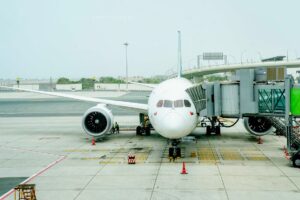Africa stands at a critical juncture, with an opportunity to redefine its economic and political landscape through a commitment to freedom from external debt and foreign aid. The vision of an Africa that does not borrow from institutions like the IMF or the World Bank is not merely aspirational; it is a necessary step towards true sovereignty and self-determination.
A New Economic Trajectory
The call for Africa to set its own trajectory is rooted in the desire for autonomy and empowerment. Historical precedents abound, illustrating how nations can reclaim their destinies. For example, after gaining independence, countries like Ghana initially embraced foreign aid but later shifted towards self-reliance under leaders such as Kwame Nkrumah, who advocated for Pan-Africanism and economic independence. By rejecting conditional foreign aid, Africa can foster a culture of accountability and self-sufficiency, allowing its citizens to actively participate in governance.
The Role of the Diaspora
Facilitating the return of the African diaspora is crucial for harnessing the skills and experiences of those who have lived abroad. Countries like India have successfully engaged their diaspora to contribute to national development through initiatives that provide support for returning citizens. By offering tools, data, and dedicated staff to assist the diaspora in their return, Africa can tap into a wealth of knowledge that can drive innovation and economic growth.
Transparency in Foreign Aid
The proposal for a continental referendum before accepting foreign aid underscores the importance of transparency and accountability. This approach echoes successful practices in countries like Brazil, where civil society organizations play a critical role in monitoring government contracts and ensuring that funds are used effectively. By requiring full disclosure from entities involved in aid projects, Africa can safeguard its interests and ensure that aid serves its intended purpose.
Anti-Corruption Measures
The establishment of a Whistleblower Anti-Corruption initiative is vital for maintaining integrity within the governance framework. Countries like Denmark have set global standards for transparency and anti-corruption measures, demonstrating how strong legal frameworks can deter corruption. By holding individuals accountable for corrupt practices, Africa can foster trust in its institutions and create an environment conducive to investment and development.
Learning from History: The IMF and World Bank
The historical context of African nations’ relationships with the IMF and World Bank reveals a pattern of dependency that has often hampered development. Reports indicate that many African countries have faced austerity measures imposed by these institutions, which have led to cuts in essential services such as healthcare and education. For instance, ActionAid’s report highlights how IMF policies have exacerbated poverty rather than alleviating it.
In contrast, nations like Rwanda have demonstrated that alternative paths exist. By focusing on homegrown solutions and prioritizing local governance, Rwanda has made significant strides in economic development without relying heavily on foreign aid.
Conclusion: A Vision for an Independent Africa
The vision of an Africa free from predatory lending and foreign aid represents a bold step towards genuine independence. By embracing self-determination, fostering diaspora engagement, ensuring transparency in aid acceptance, and implementing robust anti-corruption measures, Africa can pave the way for sustainable development.
As we look to the future, it is essential for all Africans—both on the continent and in the diaspora—to unite under this shared vision. Together, we can build a prosperous Africa that stands firm on its own terms, creating opportunities for generations to come while respecting the continent’s rich heritage and potential. The time has come for Africa to reclaim its narrative and chart a course towards true freedom and prosperity.




